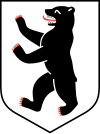
Back بوابة:الاتحاد الأوروبي Arabic Portal:Avropa İttifaqı Azerbaijani প্রবেশদ্বার:ইউরোপীয় ইউনিয়ন Bengali/Bangla Portal:Unió Europea Catalan Portál:Evropská unie Czech Portal:Den Europæiske Union Danish Portal:Europäische Union German Πύλη:Ευρωπαϊκή Ένωση Greek Portal:Unión Europea Spanish Teemasivu:Euroopan unioni Finnish
Introduction
The European Union (EU) is a supranational political and economic union of 27 member states that are located primarily in Europe. The Union has a total area of 4,233,255 km2 (1,634,469 sq mi) and an estimated total population of over 448 million. The EU has often been described as a sui generis political entity (without precedent or comparison) combining the characteristics of both a federation and a confederation. Containing 5.8% of the world population in 2020, EU member states generated a nominal gross domestic product (GDP) of around US$16.6 trillion in 2022, constituting approximately one sixth of global nominal GDP. Additionally, all EU states except Bulgaria have a very high Human Development Index according to the United Nations Development Programme. Its cornerstone, the Customs Union, paved the way to establishing an internal single market based on standardised legal framework and legislation that applies in all member states in those matters, and only those matters, where the states have agreed to act as one. EU policies aim to ensure the free movement of people, goods, services and capital within the internal market; enact legislation in justice and home affairs; and maintain common policies on trade, agriculture, fisheries and regional development. Passport controls have been abolished for travel within the Schengen Area. The eurozone is a group composed of the 20 EU member states that have fully implemented the economic and monetary union and use the euro currency. Through the Common Foreign and Security Policy, the union has developed a role in external relations and defence. It maintains permanent diplomatic missions throughout the world and represents itself at the United Nations, the World Trade Organization, the G7 and the G20. Due to its global influence, the European Union has been described by some scholars as an emerging superpower. In 2012, the EU was awarded the Nobel Peace Prize. The United Kingdom became the only member state to leave the EU, in 2020; ten countries are aspiring or negotiating to join it. (Full article...) Selected article Germany, officially the Federal Republic of Germany, is a country in Central Europe. It is bordered on the north by the North Sea, Denmark, and the Baltic Sea, on the east by Poland and the Czech Republic, on the south by Austria and Switzerland, and on the west by France, Luxembourg, Belgium and the Netherlands. Germany is a democratic parliamentary federal republic of 16 states. The country previously consisted of several sovereign states with their own history, culture, and religious affiliation. Germany was first unified as a nation-state amidst the Franco-Prussian War in 1871. The Federal Republic of Germany is a member state of the United Nations, NATO, the G8 and the G4 nations, and is a founding member of the European Union. It has the largest population and largest economy of all European Union member states. Germany is both the world's third largest economy and its largest exporter of goods. Germany is facing major demographic change. Its fertility rate of 1.39 children per mother is one of the lowest in the world, and the federal statistics office estimates the population will shrink to approximately 75 million by 2050. Chemnitz is thought to be the city with the lowest birth rate in the world. Selected pictureBanknote design credit: Kingdom of Prussia; scanned by Andrew Shiva
Did you know?...that within the Eurozone the European Central Bank has the exclusive authority to set monetary policy? ...that Greenland and United Kingdom are the only countries to ever leave the European Union? Selected cityBerlin is the capital city and one of 16 states of Germany. With a population of 3.4 million people, Berlin is Germany's largest city. It is the second most populous city proper in the European Union. Located in northeastern Germany, it is the center of the Berlin-Brandenburg Metropolitan Area, comprising 5 million people from over 190 nations. Geographically embedded in the European Plains, Berlin is influenced by a temperate seasonal climate. Around one third of the city's territory is composed of forests, parks, gardens, rivers and lakes. First documented in the 13th century, Berlin was successively the capital of the Kingdom of Prussia (1701–1918), the German Empire (1871–1918), the Weimar Republic (1919–1933) and the Third Reich (1933–1945). During the 1920s, Berlin was the third largest municipality in the world. After World War II, the city was divided; East Berlin became the capital of East Germany while West Berlin became a de facto West German exclave, surrounded by the Berlin Wall (1961–1989). Following German reunification in 1990, the city regained its status as the capital of all Germany hosting 147 foreign embassies. Berlin is a world city of culture, politics, media, and science. Its economy is primarily based on the service sector, encompassing a diverse range of creative industries, media corporations, congress and convention venues. Berlin serves as a continental hub for air and rail transport, and is one of the most visited tourist destinations in the EU. Significant industries include IT, pharmaceuticals, biomedical engineering, biotechnology, optoelectronics, traffic engineering, and renewable energy. The metropolis is home to renowned universities, research institutes, sporting events, orchestras, museums and personalities. The urban and historical legacy has made it a popular setting for international film productions. The city is recognized for its festivals, diverse architecture, nightlife, contemporary arts, public transportation networks and a high quality of living. Berlin has evolved into a global focal point for young individuals and artists attracted by a liberal lifestyle and modern zeitgeist. General imagesThe following are images from various European Union-related articles on Wikipedia.
TopicsFeatured contentFeatured articles
Featured lists
Featured contentGood articles
CategoriesRelated portalsAssociated WikimediaThe following Wikimedia Foundation sister projects provide more on this subject:
Discover Wikipedia using portals |
© MMXXIII Rich X Search. We shall prevail. All rights reserved. Rich X Search

































































